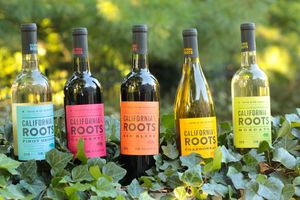Best Nonalcoholic Wine: Top Picks for Sober Sipping
Nonalcoholic wine has become an increasingly popular alternative to traditional wine, with more and more options available on the market. Whether you're looking to cut back on alcohol consumption, have dietary restrictions, or simply prefer the taste of nonalcoholic wine, there are plenty of options to choose from.
One type of nonalcoholic wine is dealcoholized wine, which starts out as a traditional alcoholic wine but has the alcohol removed through a process of filtration or distillation. Another type is alcohol-free wine, which is made without any alcohol to begin with. Nonalcoholic wines come in a variety of styles, including red, white, and rosé, and can be made from a variety of grapes.
When it comes to selecting the best nonalcoholic wine, taste is of course a top consideration. Some nonalcoholic wines can have a thin or watery texture, while others have a fuller body and more complex flavor profile. Additionally, it's important to consider the occasion and the food you'll be pairing the wine with, as some nonalcoholic wines may be better suited to certain dishes than others.
Understanding Nonalcoholic Wine
Nonalcoholic wine is a type of wine that has little to no alcohol content. It is often referred to as alcohol-free, dealcoholized, or non-alcoholic wine. Nonalcoholic wine is made in a similar way to regular wine, but the alcohol is removed through various processes.
Nonalcoholic wine is made by fermenting grapes, just like regular wine. The fermentation process converts sugar into alcohol. However, in nonalcoholic wine, the alcohol is then removed through processes such as reverse osmosis, spinning cone, or vacuum distillation.
Reverse osmosis is a process that uses a membrane to filter out the alcohol from the wine. Spinning cone is a process that uses a spinning cone column to remove the alcohol. Vacuum distillation is a process that uses heat and pressure to remove the alcohol.
The vinification process for nonalcoholic wine is similar to regular wine, but the alcohol is removed before the wine is bottled. The grapes are harvested and crushed, and the juice is fermented. The wine is then filtered and bottled.
Nonalcoholic wine can be a good option for people who want to enjoy the taste of wine without the alcohol content. It is also a good option for people who cannot consume alcohol due to medical or religious reasons. Nonalcoholic wine can be found in most wine stores, and there are many different brands and types to choose from.
It is important to note that nonalcoholic wine is not the same as grape juice. Nonalcoholic wine is made from fermented grapes and has a similar taste to regular wine, while grape juice is made from fresh grapes and has a sweeter taste.
Nonalcoholic Wine Varieties
Nonalcoholic wine is a rapidly growing category, with an increasing number of varieties available on the market. These wines are made by removing alcohol from traditionally fermented wines, or by using methods that do not involve fermentation at all.
Red wines, such as Cabernet Sauvignon, Merlot, and Pinot Noir, are among the most popular nonalcoholic wine varieties. These wines are made using traditional red wine grapes and are typically aged in oak barrels to give them a rich, complex flavor. Nonalcoholic red wines are a great choice for those who want to enjoy the taste of red wine without the alcohol content.
White wines, such as Sauvignon Blanc and Chardonnay, are also available in nonalcoholic varieties. These wines are typically made using white wine grapes and are known for their light, crisp taste. Nonalcoholic white wines are a great choice for those who prefer a lighter wine or who want to enjoy wine with a meal without the alcohol content.
Rosé is another popular nonalcoholic wine variety. These wines are made using a blend of red and white wine grapes and are known for their light, refreshing taste. Nonalcoholic rosé is a great choice for those who want to enjoy a summery wine without the alcohol content.
Cava, a sparkling wine variety from Spain, is also available in nonalcoholic form. These wines are typically made using traditional Cava grapes and are known for their bubbly, effervescent taste. Nonalcoholic Cava is a great choice for those who want to enjoy a celebratory drink without the alcohol content.
Overall, there are many nonalcoholic wine varieties available on the market, including both red and white wines, rosé, and sparkling wines. These wines are a great choice for those who want to enjoy the taste of wine without the alcohol content.
Taste and Flavor Profiles
Nonalcoholic wines come in a variety of flavors and taste profiles that mimic their alcoholic counterparts. The taste and flavor profiles of nonalcoholic wines can range from dry and crisp to sweet and fruity.
Some nonalcoholic wines have citrus notes, which can be either tart or sweet. These citrus notes can be reminiscent of lime, lemon, or grapefruit. Other nonalcoholic wines may have flavors of apple or green apple, which can be crisp and refreshing.
Nonalcoholic wines can also have an oaky aroma and flavor profile, which is similar to the taste of oak-aged wines. This flavor profile can be achieved by adding oak chips or using oak barrels during the production process.
Spices such as ginger can also be found in some nonalcoholic wines, which can add a warm and spicy flavor to the wine. Additionally, nonalcoholic wines can have fruity notes such as strawberry, cherries, raspberries, pear, and currant.
Tropical fruit flavors can also be found in some nonalcoholic wines, which can be reminiscent of pineapple, mango, and papaya. Red fruit flavors such as cherries and raspberries can also be present in some nonalcoholic wines.
Overall, the flavor profile of nonalcoholic wines can be complex and varied, offering a range of tastes and aromas that appeal to a wide range of palates.
Best Brands and Where to Buy
When it comes to nonalcoholic wines, there are several brands that stand out in terms of taste, quality, and variety. Here are some of the best brands of nonalcoholic wines and where to buy them:
Giesen
Giesen is a well-known brand that produces a range of nonalcoholic wines. Their products are made using high-quality grapes and offer a taste that is similar to traditional wines. Giesen's nonalcoholic wines are available in several varieties, including Sauvignon Blanc and Pinot Noir. You can purchase Giesen's nonalcoholic wines from their website or from Amazon.
Ariel Cabernet Sauvignon
Ariel Cabernet Sauvignon is a popular nonalcoholic wine that is known for its rich flavor and aroma. This wine is made using high-quality grapes from the Napa Valley and is dealcoholized to remove the alcohol content. Ariel Cabernet Sauvignon is available for purchase from Total Wine and Amazon.
Leitz Eins Zwei Zero Riesling
Leitz Eins Zwei Zero Riesling is a nonalcoholic wine that is made using grapes from the Rheingau region in Germany. This wine has a fruity flavor and a crisp finish, making it a great choice for those who prefer sweeter wines. Leitz Eins Zwei Zero Riesling is available for purchase from Total Wine and Amazon.
Noughty Alcohol-Free Sparkling Chardonnay
Noughty Alcohol-Free Sparkling Chardonnay is a nonalcoholic wine that is perfect for celebrations and special occasions. This wine has a light, refreshing taste and is made using Chardonnay grapes from Marlborough, New Zealand. Noughty Alcohol-Free Sparkling Chardonnay is available for purchase from their website and Amazon.
Töst
Töst is a nonalcoholic wine brand that offers a range of sparkling and still wines. Their products are made using natural ingredients and are free from artificial flavors and preservatives. Töst's nonalcoholic wines are available in several varieties, including Sparkling Rosé and White Tea. You can purchase Töst's nonalcoholic wines from their website and Amazon.
Overall, there are many great brands of nonalcoholic wines available on the market today. Whether you prefer a sweet or dry wine, there is a nonalcoholic option that is sure to satisfy your taste buds. When purchasing nonalcoholic wines, be sure to check the alcohol content and ingredients to ensure that you are getting a high-quality product.
Pairing Nonalcoholic Wine with Food
When it comes to pairing nonalcoholic wine with food, there are a few things to keep in mind. First, consider the flavor profile of the wine. Nonalcoholic wines can be sweet, dry, or somewhere in between, and each will pair differently with different foods. Second, consider the intensity of the wine. A light-bodied wine will pair differently than a full-bodied wine. Finally, consider the flavors of the food you are pairing with the wine.
For seafood, a light-bodied nonalcoholic white wine is a good choice. Look for a wine with citrus notes, such as lemon or lime, to complement the seafood. Cheeses can be paired with both red and white nonalcoholic wines. For a soft cheese, such as brie or camembert, a light-bodied nonalcoholic white wine is a good choice. For a hard cheese, such as cheddar or parmesan, a full-bodied nonalcoholic red wine pairs well.
When pairing nonalcoholic wine with pasta, consider the sauce. A light-bodied nonalcoholic red wine pairs well with tomato-based sauces, while a full-bodied nonalcoholic red wine pairs well with meat-based sauces. For a white sauce, such as alfredo, a light-bodied nonalcoholic white wine is a good choice.
Nonalcoholic white wine pairs well with white tea, while nonalcoholic red wine pairs well with coffee. Nonalcoholic wine can also be paired with tea and juice. For a light-bodied nonalcoholic white wine, try pairing it with a light, fruity tea, such as green tea. For a full-bodied nonalcoholic red wine, try pairing it with a bold, spicy tea, such as chai. Nonalcoholic wine can also be paired with juice. For a light-bodied nonalcoholic white wine, try pairing it with orange juice. For a full-bodied nonalcoholic red wine, try pairing it with cranberry juice.
Overall, when pairing nonalcoholic wine with food, it's important to consider the flavor profile, intensity, and flavors of both the wine and the food. With a little experimentation, it's possible to find the perfect pairing for any meal.
Health and Lifestyle Considerations
When it comes to choosing nonalcoholic wines, there are several health and lifestyle considerations to keep in mind. Here are some important factors to consider before making a purchase:
Alcohol-Free
One of the main reasons people choose nonalcoholic wines is to avoid alcohol. While most nonalcoholic wines contain less than 0.5% alcohol by volume, some brands offer completely alcohol-free options. These are a great choice for those who are abstaining from alcohol for health or personal reasons.
Vegan
For those who follow a vegan lifestyle, it's important to choose nonalcoholic wines that are free from animal products. Many nonalcoholic wines are vegan-friendly, but it's always a good idea to check the label or contact the manufacturer to confirm.
Organic
Organic nonalcoholic wines are made from grapes that are grown without the use of synthetic pesticides, herbicides, or fertilizers. These wines are a great choice for those who are concerned about the environmental impact of their purchases.
Dry January
Dry January is a popular trend where people abstain from alcohol for the entire month. Nonalcoholic wines can be a great alternative for those who still want to enjoy a glass of wine with dinner or at a social gathering.
Zero Alcohol
For those who are recovering from alcohol addiction or simply want to avoid all traces of alcohol, zero alcohol nonalcoholic wines are a great choice. These wines are completely alcohol-free and offer the same taste and aroma as traditional wines.
Designated Driver
If you're planning on being the designated driver for a night out, nonalcoholic wines are a great alternative to traditional wines. You can still enjoy the taste and experience of wine without the risk of impaired driving.
The Zero Proof
The Zero Proof movement is all about enjoying cocktails and drinks without alcohol. Nonalcoholic wines can be a great addition to your zero proof bar, offering a sophisticated and complex flavor profile without the alcohol content.
Overall, nonalcoholic wines are a great choice for those who want to enjoy the taste and experience of wine without the negative health effects of alcohol. By considering these health and lifestyle factors, you can choose the perfect nonalcoholic wine for your needs.
Regulations and Standards
Nonalcoholic wine is regulated by various government agencies and industry organizations to ensure that it meets certain standards and is safe for consumption.
The Food and Drug Administration (FDA) is responsible for regulating the safety and labeling of nonalcoholic wine in the United States. According to the FDA, nonalcoholic wine must contain less than 0.5% alcohol by volume (ABV) to be considered nonalcoholic. If a product contains more than 0.5% ABV, it must be labeled as alcoholic wine and is subject to the same regulations as traditional wine.
In addition to the FDA, the Alcohol and Tobacco Tax and Trade Bureau (TTB) also regulates the production and labeling of nonalcoholic wine in the United States. The TTB requires that nonalcoholic wine be produced using the same methods as traditional wine, with the alcohol removed through a process that does not alter the wine's flavor or aroma.
Internationally, nonalcoholic wine is subject to regulations set by each country's respective government agencies. For example, in the European Union, nonalcoholic wine must contain less than 0.5% ABV and is subject to the same labeling requirements as traditional wine.
Industry organizations, such as the International Organization of Vine and Wine (OIV), also provide guidelines and standards for the production and labeling of nonalcoholic wine. The OIV recommends that nonalcoholic wine be produced using grapes that are suitable for wine production and that the alcohol removal process should not alter the wine's sensory properties.
Overall, the regulations and standards for nonalcoholic wine are designed to ensure that consumers have access to safe and high-quality products that meet certain standards for production and labeling.
Conclusion
Nonalcoholic wine has come a long way in recent years, with a growing number of high-quality options on the market. While some nonalcoholic wines lack the depth and character of their alcoholic counterparts, many dealcoholized wines offer a satisfying alternative for those looking to cut back on their alcohol consumption or abstain altogether.
When evaluating nonalcoholic wines, it is important to consider the quality of the grapes and the methods used to remove the alcohol. Some nonalcoholic wines are made by simply removing the alcohol from a standard wine, while others are produced using specialized techniques that preserve the wine's flavor and character.
Overall, the best nonalcoholic wines are those that offer a balance of flavor, quality, and character. Some of the top picks include Leitz Eins Zwei Zero Riesling, Proxies Blanc Slate, and Thomson & Scott Noughty Dealcoholized Rouge, all of which have received high praise from critics and consumers alike.
Whether you are looking for a nonalcoholic wine to enjoy on its own or to pair with a meal, there are plenty of options to choose from. By taking the time to research and sample different nonalcoholic wines, you can find the perfect option to suit your taste and lifestyle.



Member discussion